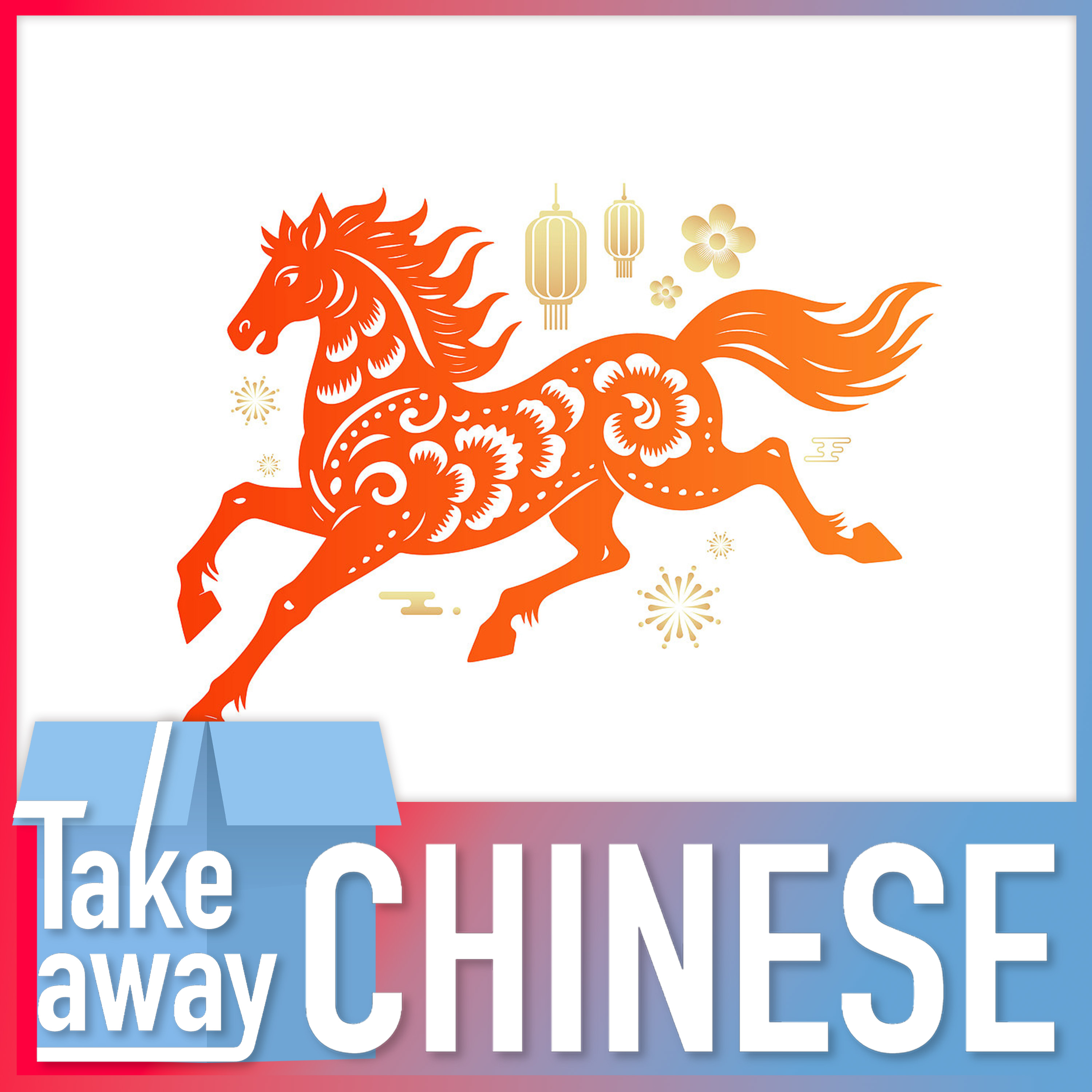Discover Takeaway Chinese
Takeaway Chinese

709 Episodes
Reverse
The Year of the Horse is almost here! In this episode, we provide you with useful horse-related cultural insights and expressions in Chinese. Tune in now and learn how "horse" can symbolize talent, success, and achievement. On the show: Niu Honglin & Steve.
(08:51) How can "horse" be used metaphorically to describe someone with great talent?
(11:45) 汗马功劳: Great contributions and hard-earned achievements.
In this special episode of Takeaway Chinese, we're going to learn how to say "good review" in Chinese.
In this special episode of Takeaway Chinese, we're going to learn how to say "greasy" in Chinese.
On "Takeaway Chinese," Dr. Chris Evans, headmaster of Reading School in the UK, explains why UK students are embracing Mandarin—and how it unlocks conversations, friendships, and future opportunities. Tune in for more insights.
(06:22) How does Dr. Chris Evans see learning Chinese?
(10:16) How are students in the UK learning Chinese?
In this special episode of Takeaway Chinese, we're going to learn how to say "river basin" in Chinese.
In this special episode of Takeaway Chinese, we're going to learn how to say "production" in Chinese.
What does China look like through the eyes of foreign friends? What fun stories do they have with their Chinese friends? Find out in this listener special of "Takeaway Chinese." On the show: Niu Honglin & Steve.
(01:22) The Chinese word that puzzled foreign learners the most at the start.
(12:57) Stories with Chinese friends.
In this special episode of Takeaway Chinese, we're going to learn how to say "keep fresh" in Chinese.
In this special episode of Takeaway Chinese, we're going to learn how to say "crowdfunding" in Chinese.
Over the past few weeks, we asked you all kinds of questions about China and Chinese learning — and now it's time to hear your stories! Tune in to our brand-new episode as Niuniu and Steve dive into your thoughts and experiences.
(05:32) Why did you start learning Chinese?
(26:38) What was the very first Chinese word you learned?
In this special episode of Takeaway Chinese, we're going to learn how to say "quit the fandom" in Chinese.
In this special episode of Takeaway Chinese, we're going to learn how to say "stand idle" in Chinese.
In this episode of Takeaway Chinese, we zoom in on time-related Chinese expressions you'll actually hear in real life. From common phrases and sentence patterns… if you want to talk about time more confidently in Chinese — this episode is right on time. On the show: Niu Honglin & Steve.
(03:32) Talking about time: key expressions in Chinese
(11:29) How was time measured in ancient China?
In this special episode of Takeaway Chinese, we're going to learn how to say "old items" in Chinese.
In this special episode of Takeaway Chinese, we're going to learn how to say "second-hand" in Chinese.
In this episode of "Takeaway Chinese," we're kicking off the New Year by unpacking the new trends and new words everyone's using right now. From fresh expressions to buzzwords shaping daily conversations, we'll explore how language captures hopes, changes, and the mood of the year ahead. Whether you're learning Chinese or just curious about what people really say in real life, this episode gives you practical phrases and cultural context. On the show: Niu Honglin & Steve.
(05:54) "Love yourself" is the new mindset.
(10:28) More people are choosing culture-driven travel experiences.
In this special episode of Takeaway Chinese, we're going to learn how to say "acupuncture" in Chinese.
In this special episode of Takeaway Chinese, we're going to learn how to say "travel photography" in Chinese.
In this episode of Takeaway Chinese, we continue to break down the hottest Chinese internet slang you really need to know—what they mean, where they come from, and how people actually use them in daily life! On the show: Niu Honglin & Steve.
(02:20) 邪修 (xié xiū): an unorthodox way of doing something that actually works.
(08:53) A基础 (jī chǔ), B就不基础 (jiù bù jī chǔ): A is basic, simple, ordinary, or standard — but B definitely isn't.
In this special episode of Takeaway Chinese, we're going to learn how to say "be infused with" in Chinese.


























I'm in love with you guys 💝
I've learnt so much from these podcasts. I don't know why, but there will be something from every single one I just remember; even if I forget most of it, I'll always learn something. Thanks guys, great job!
none of these have titles. it is very hard to navigate.
Quite informative, but I just wish they didn't have the goofy music in the background and cut down the extra chat.
I think the word you were looking for is not "otaku" but "hikikomori"
Just started. Very helpful. Sam I find you whisper when you speak in Chinese (or move away from the microphone). Thanks!!